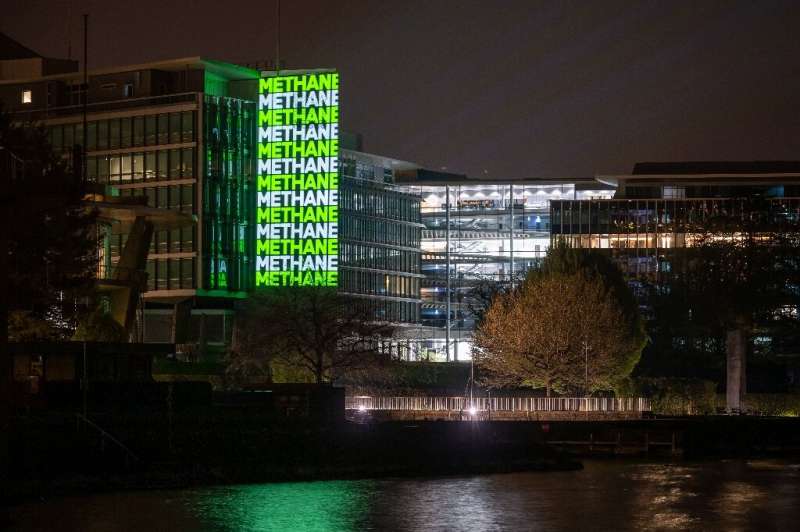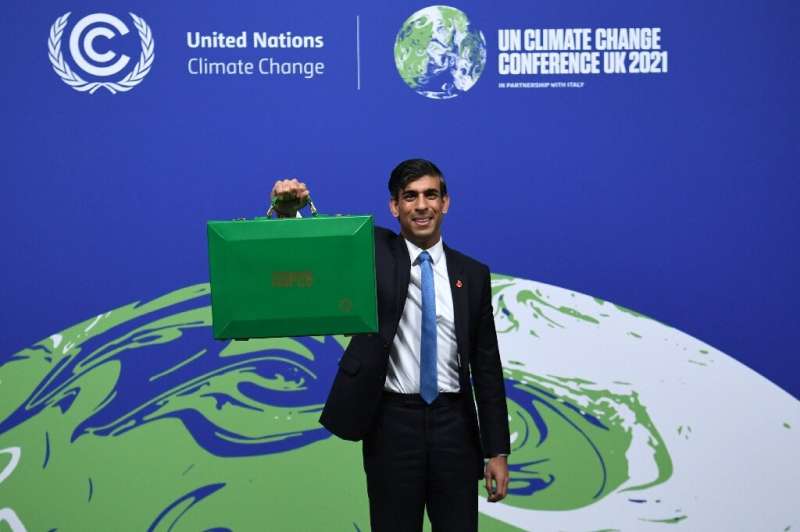This article has been reviewed according to Science X's editorial process and policies. Editors have highlighted the following attributes while ensuring the content's credibility:
fact-checked
peer-reviewed publication
reputable news agency
proofread
Most nations get low marks on 'net-zero' climate plans

Nearly all of 35 countries accounting for more than four-fifths of global greenhouse gas emissions got low marks for their net zero plans in a peer-reviewed assessment published Thursday.
Of the four biggest carbon polluters, only the European Union's plan was deemed credible, while those of China, the United States and India were found lacking.
Most nations have set targets to eliminate their carbon footprint around mid-century, with commitments from China and India for 2060 and 2070, respectively.
The extent to which Earth remains hospitable in a warming world depends in large measure on whether these pledges are kept, but assessing their credibility has proven difficult.
Many net-zero goals lack details, and some do not even specify if they cover just CO2 or other important planet-warming gases as well, such as methane and nitrous oxide.
These uncertainties, in turn, have confounded attempts to project global temperature increases, and whether the Paris climate treaty goals of capping global warming at "well below" two degrees Celsius, and at 1.5C if possible, remains within reach.
If both short-term and long-term plans from all countries are accepted at face value, global warming could stabilize in that critical range between 1.5C and 2C.
But if only policies already in place are taken into account and more-or-less vague promises are set aside, temperatures are more likely to settle between 2.5C and 3C.
"The two outcomes could not contrast more," Joeri Rogelj, director of research at Imperial College's Grantham Institute, and a team of international scientists wrote in the journal Science.
'A high-risk track'
One scenario sees climate damages capped a "potentially manageable levels," and the other "a world where climate change continues toward levels that undermine sustainable development."
Every country in the world whose greenhouse gas emissions comprise at least 0.1 percent of the global total was then given a "credibility rating" of higher, lower or much lower.

A handful of countries besides the European Union got top marks, including Britain and New Zealand.
But around 90 percent inspired lower or much lower confidence, including the US and China, which together account for more than a third of global emissions.
Most of the worlds major emerging economies—Brazil, India, South Africa and Indonesia, for example—got the lowest ratings, as did Gulf states Egypt and the United Arab Emirates, hosts respectively of last year's COP27 climate summit and COP28 in Dubai in December.
Among wealthy nations, only Australia was in the least credible tier.
Today, a third of the 35 nations have net zero policies enshrined in law.
"Making targets legally binding is crucial to ensure long-term plans are adopted," said co-author Robin Lamboll, from Imperial College's Centre for Environmental Policy.
"We need to see concrete legislation in order to trust that action will follow promises."
Detailed, step-by-step plans showing how emissions cuts will be distributed over time across all economic and social sectors is key, the authors said.
The researchers applied the new credibility ratings to model different scenarios for future emissions and the temperatures they will yield.
When only net-zero plans that inspired high confidence were added to policies already under way, global warming was projected to top out at 2.4C by 2100—still far above the Paris targets.
"The world is still on a high-risk climate track, and we are far from delivering a safe climate future," Rogelj said in a statement.
More information: Joeri Rogelj et al, Credibility gap in net-zero climate targets leaves world at high risk, Science (2023). DOI: 10.1126/science.adg6428
Journal information: Science
© 2023 AFP





















